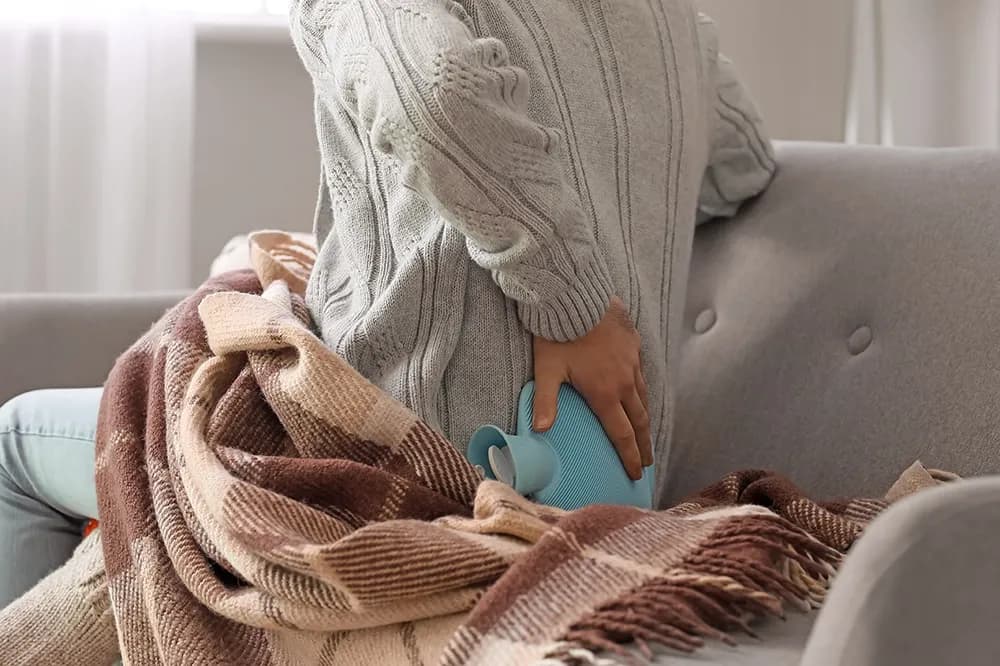5 preconceived ideas about back pain
Back pain is particularly common among the general population. And yet it is often misunderstood... From hard mattresses to heels to avoid, here's a look at five common misconceptions about back pain.
When you have back pain, you need to rest
The French National Health Insurance keeps hammering it home in its successive campaigns: when you've got back pain, the solution is movement! In fact, for a long time, rest was recommended in response to a painful episode. While this may have been the recommendation just a few years ago, it has evolved with science. Studies now unanimously show that a rapid resumption of activity is far more effective: it strengthens muscles and helps prevent further episodes of pain. Once the very acute phase is over (generally 24 to 48 hours), it is essential to remobilise your back muscles. Climbing stairs, vacuuming... any activity is a good idea. On the contrary, a sedentary lifestyle is a factor that aggravates back pain. Good to know!
Wearing high-heeled shoes can cause back pain.
Heeled shoes are often associated with back pain. The reason is that the weight of the body is shifted to the front of the feet, altering the curvature of the spine. However, it would appear that the reality is a little more nuanced. Many orthopaedic surgeons have opposed the theory that wearing heels can cause back pain. A recent review of the literature (1) agrees with them: studies showing a link between low back pain and high heels are fairly unreliable. Wearing heels from time to time does not really pose a problem, and the appropriate height depends on the individual! On the other hand, doctors and scientists warn against wearing heels for too long, as they are associated with knee problems and can lead to hallux valgus (2).
Hard mattresses are better for your back.
This is another long-heard recommendation. In the past, people used to recommend sleeping on a wooden plank in case of lower back pain... Nowadays, we know that there's no need to give up your soft mattress and spend the night on the box spring. In fact, sleeping on a hard mattress has no particular benefit. The message is as follows: mattress comfort is specific to each person and depends on their morphology and habits. On the other hand, an inappropriate mattress can actually cause back pain. It's up to you to choose the one that's right for you!
When your back hurts, it's better to pull something than push it.
This recommendation seems to be common sense. But it's not! Pulling an object will only aggravate the pain. In fact, in this situation, the tension is concentrated in the back. What's more, when you pull an object, you tend to bend over and curve your spine, which is not advisable for back sufferers.
On the other hand, when you push an object, the load is spread over your arms, back and legs. Pushing also makes it easier to keep your spine straight. Finally, forget about ropes and other ties to help you move the object! The further the weight of the object is away from the body, the more strain it puts on the back.
The weather has an impact on back pain
We often hear that wet, rainy weather is a trigger for back pain and rheumatism. Several studies have attempted to identify a causal link between these two phenomena. Conclusion: this credo seems to be contradicted by science (3). Neither rain, nor wind speed, nor atmospheric pressure, nor temperature, appear to be significant factors associated with an increase in painful episodes. The scientists point out that the human brain has a tendency to look for a causal link between two events that are not in fact causal. This could be the only explanation!
- Brent S. Russell, The effect of high-heeled shoes on lumbar lordosis: a narrative review and discussion of the disconnect between Internet content and peer-reviewed literature, J Chiropr Med. 2010, doi: 10.1016/j.jcm.2010.07.003
- T.Nguyen & al, Factors associated with hallux valgus in a population-based study of older women and men: the MOBILIZE Boston Study, Osteoarthritis and Cartilage, Volume 18, Issue 1, January 2010, Pages 41-46, doi.org/10.1016/j.joca.2009.07.008
- Daniel Steffens & al, Weather Does Not Affect Back Pain: Results from a Case-Crossover Study. Arthritis Care and Research; 2014, DOI: 10.1002/acr.22378


